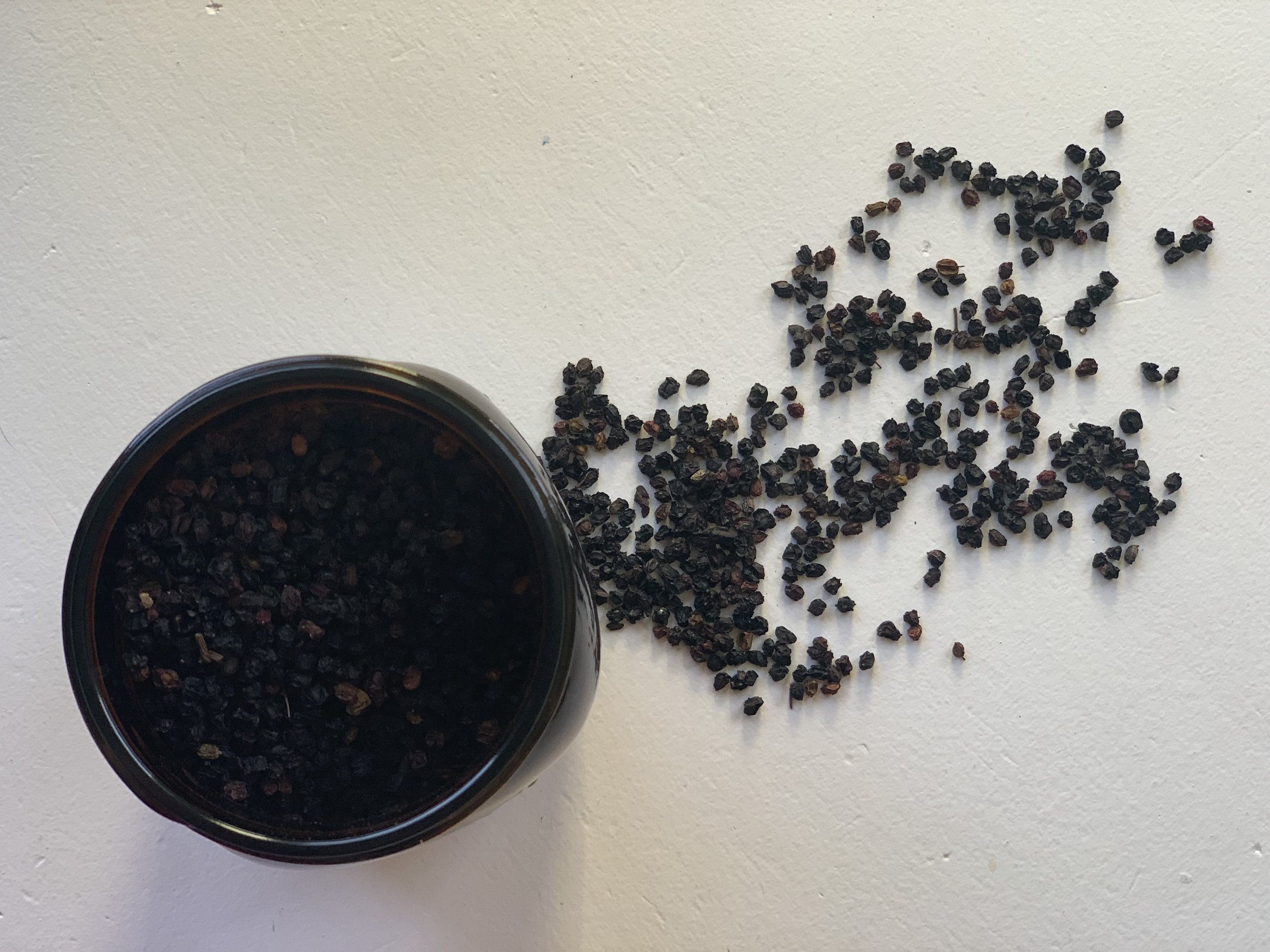sambucus nigra - elder berry
The part of the Elder shrub that is most commonly used are the berries (although the flowers can also be used). The berries are dark in color and are sweet, sour and slightly bitter in taste. The berries help to support the immune system and act as a nutritive, or an herb that has food-like nutritional value. The berries are rich in anthocyanin flavonoids, vitamin C, and quercetin.
Anthocyanins are what gives the elderberry its antioxidant, anti-inflammatory and anti-viral properties. Quercetin is a polyphenol that also has antioxidant and anti-inflammatory effects that might help reduce swelling, control blood sugar, and even prevent heart disease. Vitamin C aids in the growth and repair of body tissue. It’s involved in collagen production, immune system function, wound healing, iron absorption and maintenance of cartilage, bones and teeth. Together these constituents all provide elderberry with its reputation as a preventative for colds and flus.
Take a spoonful of elderberry syrup when you feel the first signs of a cold coming on. You can continue to take up to 1-2 tsp four times a day while you’re fighting off your pathogen. Don’t continue dosing after you recover, you want to boost your immune system only when you need it the most in order to get the most benefit. When you’re not sick, you want to tonify and support your immune system, so the next time you’re better able to fight off the pathogen and not get sick at all. (There are different herbs for that!).
Typically you’ll come down with a cold or flu when the weather changes or when you’re exposed to someone else who is sick. Starting in the Winter months, rebel + dart creates limited quantities of elderberry syrup to get you through this colder time of year. Stay tuned for availability!


